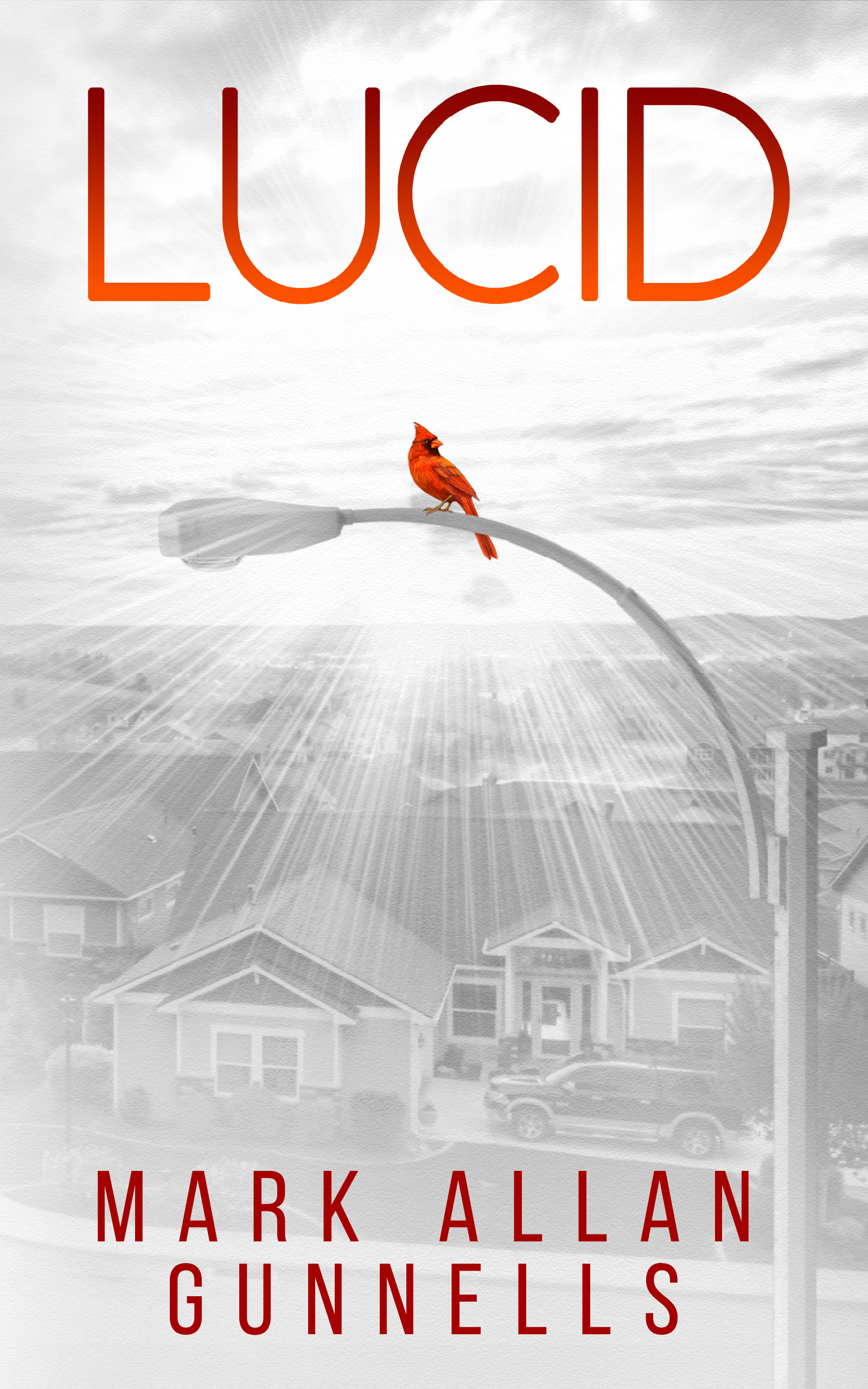This week on The Scariest Part, I’m very happy to welcome back author Mark Allan Gunnells, whose latest novel is Lucid. Here is the publisher’s description:
Jimmy Mullinax has the perfect life… as long as he is asleep.
Jimmy discovered at a young age that he was a lucid dreamer, able to control his dreams and create an ideal world for himself. No matter how rough things got in his waking life, he always had the dream world into which he could escape. Until the accident.
After getting hit by a car, Jimmy finds himself in a coma, which traps him in his dream world. At first this seems wonderful, but then he realizes that the people in his dream have more autonomy than he thought. And some of them want him dead.
Can Jimmy wrestle control of his dream back from those that want to turn it into a nightmare?
And now, let’s hear what the scariest part was for Mark Allan Gunnells:
I’ve been lucky enough to do a few of these articles, and usually the scariest part for me has to do with promotion or pitching an idea to a publisher or getting started or honoring a city I loved. Never before has the scariest part been the writing itself.
Until now.
My new novel Lucid, out October 30 from Valhalla Books, is perhaps the most unstructured thing I have ever written. That isn’t to suggest it will feel unstructured to the reader (I very much hope it doesn’t), but I only mean that the writing process itself was incredibly unstructured.
I should say that as a storyteller I rarely ever outline. I’ve done it a few times, but overall I start with a premise and a vague idea of where I’m going even if I don’t know how I’m going to get there exactly. It’s a process that isn’t for every writer, but it seems to work for me.
However, the writing of Lucid went beyond writing without an outline. In some ways it felt more like being on the trapeze four hundred feet above the ground with no net or safety harness. I got the idea for the novel by musing on the old guideline that you should never start a story with a dream sequence, and I got to thinking what it would be like to write a book that was almost entirely a dream sequence.
From there I developed the basic premise of a man who could lucid dream and had built a perfect dream world to escape from his imperfect life, and an accident leaves him in a coma and trapped in that dream world which starts to turn against him. Exactly how would the dream turn against him, and why? Well, I didn’t know, but I figured I’d jump off the cliff and build my wings during the fall, hoping I didn’t crash onto the rocks below.
I truly started with no clear structure for the story. I always start with some unanswered questions that I will discover the answers for along the way, but here I really was wandering into a deep dark wood without a map or flashlight. I realized early on that the story would cut back and forth in time, not remotely a linear progression at all, but I didn’t even pause to consider planning out when I’d do the time cuts and flashbacks.
My reasoning for this was that the book was about dreams. It should feel surreal and almost disjointed, the way dreams are. A dream can change locations, people can morph into other people, all with whiplash suddenness. Dreams are not structured, full of unexpected imagery and bizarre turns. I wanted to capture that in the writing.
Which was exhilarating in a way, but also frightening. It felt like an experiment, and I had no idea whether or not it would work. In the past, when I would finish a day’s writing session, I would at least have some idea of the scene I would be writing the next day. Not the case with Lucid. I would come into my office every morning, sit down, and have no real idea what I was about to create. I would honestly and literally come up with it in the moment. Think, “Hmm, I guess today we’ll have a flashback to this character’s college years,” and then simply start typing, not even knowing exactly what would happen in the scene until it happened. Entire plotlines and characters were born in the moment, and these influenced the direction of the story and the ultimate ending.
It was a scary way to go about it, and there were times I asked myself, “Why in the hell are you doing this?” This book also required a much heavier edit, where I reconfigured some scenes and cut others out entirely, but I have to say I am very happy with the end result. My hope is that the reader won’t feel any of my fear but will still get to experience the surreal nature of dreams while reading my book, heightening the experience.
So yes, the actual writing of Lucid was the scariest part for me, but as often happens when you face your fears, you end up with something you can be proud of.
Lucid: Amazon
Mark Allan Gunnells: Blog / Facebook / Twitter / Amazon Author Page


